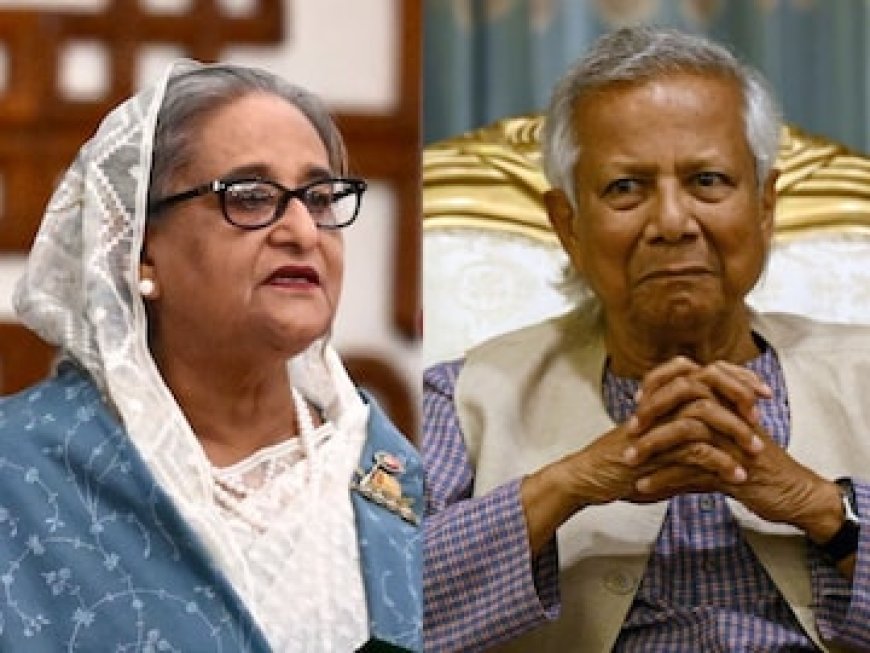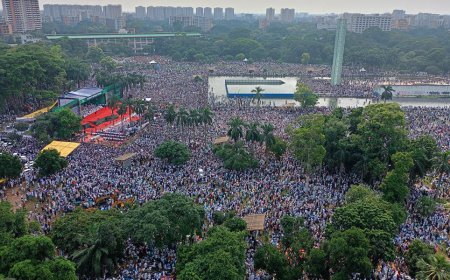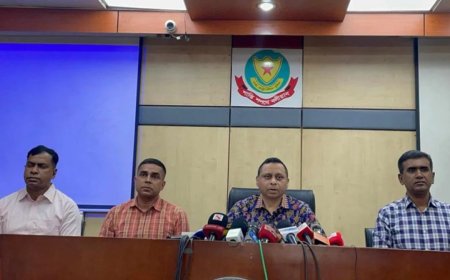Bangladesh’s Former Army Chief and 10 Ex-Ministers Summoned on Alleged Genocide Charges
Bangladesh’s Former Army Chief and 10 Ex-Ministers Summoned on Alleged Genocide Charges

On October 17, the tribunal issued arrest warrants for Hasina and 45 others, including her son Sajeeb Wazed Joy and several former cabinet members
On Sunday, Bangladesh’s International Crimes Tribunal (ICT) summoned 20 individuals, including former army chief Ziaul Ahsan, 10 ex-ministers, and two advisers to deposed Prime Minister Sheikh Hasina, to appear before it next month regarding alleged crimes against humanity and genocide during the July-August uprising. According to the interim government, at least 753 people were killed and thousands injured during the uprising, which the ICT prosecution team and the interim government characterized as crimes against humanity and genocide. So far, over 60 complaints related to these crimes have been filed against Hasina and her party leaders with the ICT investigation agency.
The ICT has instructed relevant authorities to present the 20 individuals, including 10 former ministers and two advisers to Hasina, by November 18, as reported by The Daily Star. This directive was issued by a three-member ICT bench led by Chairman Justice Md Golam Mortuza Majumder, following a request from Chief Prosecutor Md Tajul Islam. The list of those summoned includes former ministers such as Faruq Khan, Rashed Khan Menon, Hasanul Haq Inu, Zunaid Ahmed Palak, Abdur Razzaque, Shahjahan Khan, Kamal Ahmed Majumder, and Golam Dastagir Gazi, along with former advisers Tawfiq-e-Elahi and Salman F Rahman, former army chief Ahsan, former justice Shamsuddin Chowdhury Manik, and former home secretary Jahangir Alam, as noted by the Dhaka Tribune.
On October 17, the tribunal also issued arrest warrants for Hasina and 45 others, including her son Sajeeb Wazed Joy and several former cabinet members. The ICT was established by Hasina's Awami League government in March 2010 to prosecute those responsible for crimes against humanity committed during the 1971 Liberation War. The tribunal later formed ICT-2, leading to the execution of at least six leaders from Jamaat-e-Islami and Hasina’s political rival Khaleda Zia’s BNP party based on its judgments. After the retirement of its chairman in mid-June, the tribunal remained inactive until the interim government led by Chief Adviser Muhammad Yunus reconstituted it on October 12.
Nobel laureate Yunus, who is 84 years old, became the Chief Adviser of Bangladesh’s interim government on August 8, following Prime Minister Hasina’s departure to India on August 5 amid mass protests led by students.
What's Your Reaction?





















































































